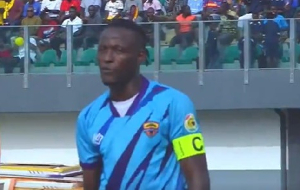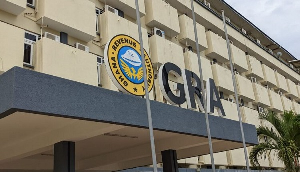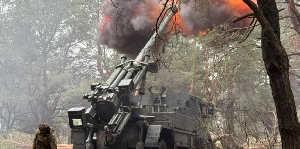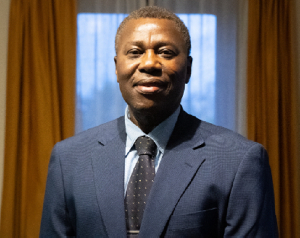Ho, Sept 23, GNA - Mr Ruben Amegashitsi, Volta Regional Economic Planning Officer, has recommended a Medium Term Development Plan approach to disbursing Members of Parliament (MPs) share of the Common fund at the District Assembly level.
This, he held, would help curtail the conflicts between MPs and District Chief Executives (DCEs) in the disbursement of the fund. He made the suggestion at a two-day workshop for members of the Volta Region Parliamentary Caucus, Municipal and District Chief Executives, District Co-ordinating Directors and Presiding Members with a view to forging co-operation among them.
The workshop was under the theme: "Building co-operative partnership among MPs, the Regional Co-ordinating Council, and Municipal and District Chief Executives of the Volta region for sustainable Development".
Friedrich Ebert Foundation of Germany sponsored it. Mr Amegashitsi explained that because the Medium Term Development Plan evolved from the communities level through the Area Councils to the District Assemblies, the MPs would be able to factor the needs of their constituents into that plan which would be rolled on from year to year and funded by the MPs Common Fund.
He explained that the advantage of that approach would be that it would not be personality based and that irrespective of who became the MP, the projects in the plan would be executed.
Mr Amegashitsi said by that approach also, the Assemblies would come to own those projects and thus serve as a catalyst in curtailing the friction between MPs and DCEs regarding the disbursement of the MPs Common Fund.
He said like the Medium Term Development Plan, that Plan which could be designated the MPs Medium Term Development Plan would have guidelines and reflect the Ghana Poverty Reduction Strategy (GPRS). Mr Amegashitsi said the present approach where the MPs came up with projects for funding from their share of the Common Fund was ad-hoc and a recipe for unnecessary conflicts because of the tendency to be disruptive of the general plan of the Assemblies.
Much of the discussions at the workshop indicated that the source of conflict between the DCEs and the MPs in the region arose out of the disbursement of the MPs share of the Common Fund. There were indications however that there was co-operation between some DCEs and their MPs regarding the disbursement of the MPs Common Fund.
Leading the discussions on the topic, "Trust and confidence building measures as essential ingredients in fostering peace and development at the district level", Professor Kofi Quashigah of Law faculty of the University of Ghana Legon, said the relationship between the DCEs and MPs should be guided by the spirit captured in the Directive Principles of State policy in the 1992 Constitution.
He said article 35 sections one, five, six and nine of the constitution variously made it obligatory for MPs and DCEs and other public and political office holders to protect the interest of the people by promoting freedom and justice and recognize the sovereignty of the people.
They are also required to promote the culture of political tolerance and integration of the people, as well as facilitate the people's participation in decision-making. Professor Quashigah, said the District Assembly structure had an inherent element of distrust among its members because of its composition.
He said the areas of conflict arising out of the of the District Assemblies were however not intended by the Constitution whose framers wanted to prevent the rancour at the national level from seeping down to the Assemblies.
Professor Quashigah said because there was scramble for the national cake, a region whose DCEs and MPs do not co-operate and adopt a united front would be losing out on development. He said the type of opposition, which is good for the country especially the Volta Region was "constitutional opposition" that recognizes collaboration which should not be misconstrued as connivance. "A real opposition identifies with the general interest and not personal antagonism."
Mr Dan Abodakpi, MP for Keta who chaired the function said though a certain amount of friction was necessary to propel society forward such friction needed to be constructive. He said the keen interest shown by the Regional Minister, Mr Kofi Dzamesi in seeing to the organization of the workshop was itself a positive proof of a thaw in relations between the MPs and the political leadership in the region.
He said the role played by MPs from the region mainly in opposition, to the smooth process of confirming Mr Dzamesi as the Regional Minister, was an indication of improved relations among the political actors in the region. 23 Sept 2005.
Regional News of Friday, 23 September 2005
Source: GNA












